
Aurum Group, a diversified industrial and investment group, in the current year has already invested over UAH 16.1 million within the framework of the program for agricultural equipment modernization, a press release of the group reads.
“Developing the agricultural sector, we plan to use innovative agricultural technologies and this year we have invested more than UAH 16.1 million in modernization of agricultural equipment. Part of these funds is the group’s own resources, as well as bank financing,” founder of the group Olena Lebedeva said.
Today, Aurum Group’s agricultural enterprises cultivate more than 12,000 hectares of land.
“Since 2018, FUIB has been working with Aurum Group to finance building freight railcars based on Diesel Plant, and in 2019 they began cooperation with the agribusinesses of the group: the bank transferred agricultural equipment worth UAH 12.4 million to Aurum Trans under the terms of financial leasing,” head of the financing leasing department at FUIB Volodymyr Rudenko said.
Aurum Group was registered at the end of 2016. Its core business is engineering, rail freight transportation, industrial pump building, chemical industry, investment in real estate, and the agricultural sector. Today, the group exports its products to the CIS countries, the Middle East, the United States, and China.
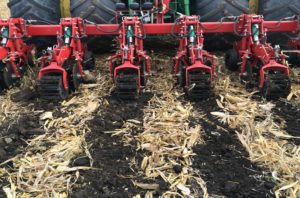
The spending of funds under the program of providing public grants to buy agricultural machinery in 2018 grew to UAH 912.9 million from UAH 134.1 million a year ago, and the number of agricultural companies that participated in the program of partial compensation for purchase of Ukrainian-made agricultural machinery rose to 7,043 from 1,220.
Agricultural enterprises bought 17,182 units of agricultural machinery for UAH 4.4 billion in 2018, First Deputy Prime Minister, Minister of Economic Development and Trade Stepan Kubiv wrote on his Facebook page. In 2017, companies bought 2,906 units of agricultural machinery under the public grants program, he said. “This mechanism of support for Ukrainian agricultural machinery manufacturers allows us to simultaneously stimulate modernization in the agricultural and industrial sector, increase the localization of agricultural machinery production in Ukraine and develop Ukrainian industrial production,” Kubiv said.
As reported, the budget for 2018 provided for UAH 945 million to reduce the cost of agricultural equipment. The 2019 budget for government support of the agricultural and industrial complex is announced to be about UAH 6 billion. In particular, grants for the purchase of agricultural equipment amount to some UAH 0.9 billion.
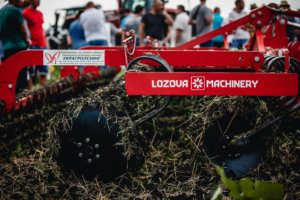
Lozova Machinery (a brand of cultivating agricultural machinery manufactured by the enterprises of the UPEC industrial group, Kharkiv region) soon will sign a distribution contract with BELARUS company, which will represent the products of Lozova Machinery in Germany, the press service of UPEC has reported. The relevant agreement was reached during the participation of Lozova Machinery in a large exhibition of agricultural products and agricultural machinery Landwirtschaftliches Hauptfest 2018 in Stuttgart (Germany).
“We have agreed to cooperate with the largest European distributor of the Minsk Tractor Plant (MTZ) – the BELARUS company, which has an extensive dealer network. In the near future, we will sign a distribution contract. It is planned that in the future BELARUS will represent the production of Lozova Machinery in Germany,” the press service said, citing Sales Director of the agricultural division of UPEC Eduard Chudopalov.
According to him, in Germany it is planned to expand the presence and demonstration of equipment at the exhibition events of the northern and eastern regions of this country.
“In particular, in February, with a new dealer, they scheduled joint participation in one of the largest German exhibitions in Leipzig,” he said.
The press service of UPEC told Interfax-Ukraine agency that currently there is one dealer of Lozova Machinery in Germany. The share of this country in the company’s European exports is 3%.
“But next year, we are counting on a significant increase in the share,” the press service said.
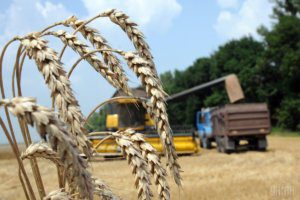
Exports of Ukrainian agrarian products to European countries in January-May 2018 increased by $13 million, or 0.6%, to $2.3 billion compared to the five months of last year, the Ministry of Agrarian Policy and Food reported on its website. “In the five months of 2018, we see the increase in our agricultural exports to the EU by almost $13 million compared to the same period in 2017. The largest share in the structure of agricultural exports to the EU was that of grains, which were exported for almost $862 million, sunflower oil worth $465.8 million, residues and waste products of the food industry for $220 million, oilseeds worth $211.5 million, poultry for $100.5 million,” the press service said citing Deputy Minister of Agrarian Policy and Food for European Integration Olha Trofimtseva.
According to her, exports of Ukrainian processed and niche agricultural products to EU markets also rose. In particular, juice exports for the period grew by $11 million, or 2 times, confectionery products from sugar by $8.3 million, or 89.4%, chocolate and other cocoa products by $6.5 million, or 66.2%, legumes by $6.5 million, or 2.4 times, eggs without shell and egg yolks by $6.1 million, or 20 times.
According to the ministry, the main importers of Ukrainian agrarian products were the Netherlands with a share of exports of 15.9%, Spain with 14.1%, Italy with 14%, Poland with 14%, Germany with 9.3%, and France with 6.8%.
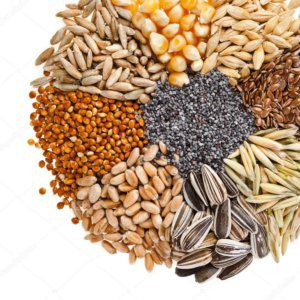
The flow of agricultural goods between Ukraine and the European Union (EU) in January-March 2018 totaled $2.2 billion, according to a posting on the website of the Institute of Agrarian Economy research center. Deputy Director of the center Mykola Puhachev said that the surplus was $845 million. “In Q1 2018, both imports grew by 27%, to $669 million and exports by 15%, to $1.513 billion year-over-year,” he said.
The largest trade partners of Ukraine in the EU are Spain, the Netherlands, Italy, Poland, Germany and France, with the total share of the agricultural goods flow of over 72%. According to the report, grain and oilseeds, as well as sunflower oil and meal provide for the main volumes of supplies from Ukraine to Europe.
Ukraine imports mainly grain, oilseeds, cacao beans and chocolate, various food, waste of processing industry, spirit and alcohol.
Puhachev said that in January-March 2018, Ukrainian exporters fully used duty free quotas for what, corn, honey, apple and grape juices, malt, the quarterly quota for poultry and the half-year quota for butter. For other food the average usage of quotas is rather low.
“In 2018, the quotas for some goods are growing as it was planned, in particular, sugar, starch, juices, barley cereal, wheat, corn, lamb meat and other products. In addition, preferential quotas for eight goods are in effect for Ukraine: honey, grape juice, barley cereal, preserved tomatoes, oats, wheat, corn and barley,” the expert said.
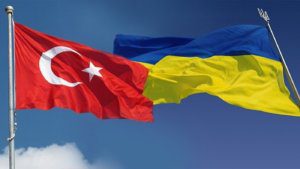
Ukraine and Turkey have discussed access to the market of agricultural goods and the services market during the 10th round of negotiations on the free trade area (FTA), as well as the provisions of the agreement related to telecom and e-commerce, Deputy Minister of Economic Development and Trade, Trade Representative of Ukraine Natalia Mykolska has said. “The round was not an easy one, since we defend the opening of the most profitable opportunities of the Turkish market for Ukraine and Ukrainian exporters. So we used this opportunity to address the issues of access to agricultural markets,” she wrote on her Facebook page on Saturday.
She also pointed out significant progress in the above-mentioned issues: “We are moving intensely, as both sides have an understanding that the agreement is in the priority of the governments of the two countries.”
Earlier, the trade representative said that Ukraine and Turkey had agreed to complete negotiations on the FTA in the near future.